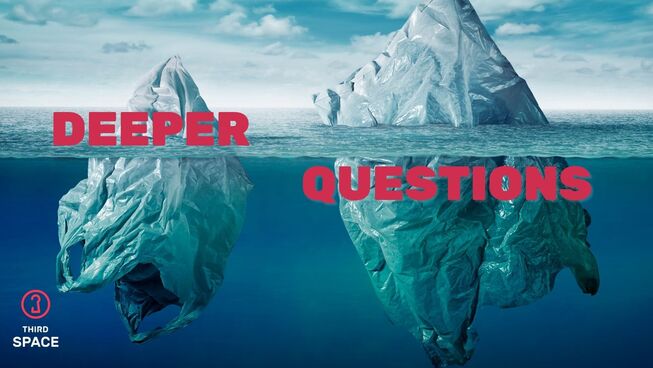Ep 135: Why give voice to the voiceless?
What motivates someone to care? Hear Esther's story as she shares about why she cares for people facing speech challenges in our community.
Our guest: Esther Bird is an experienced speech pathologist with experience in health, early intervention and educational settings. Esther’s special interests include working with children with disorders of speech, language and literacy. She also writes children’s songs and attends St Augustine’s Moreland church.
This conversation was recorded in partnership with St Augustine's Anglican Church in Moreland.
Invest in Bigger thinking for as little as US$1 per podcast on Patreon.
Bigger Questions asked in the conversation
So you love writing children’s songs? What do you love about it?
What is your inspiration for that?
Any particularly memorable songs or interactions with children?
Smaller Questions
To kick off Bigger Questions we like ask a couple of smaller questions - we do try to have a bit of fun on the show.
Today we’re talking with Esther Bird about giving voice to the voiceless. So Esther our smaller questions to you are about the TV show, The Voice.
Esther’s work as a speech pathologist
So Esther, you work as a speech pathologist, can you share with us what that means. For it’s a lot broader than simply dealing with stuttering isn’t it?
So you do more than elocution like in My Fair Lady. You don’t get , The Rain in Spain stays mainly in the plain. Hartford, Hereford, and Hampshire...? Hurricanes hardly happen? This isn’t quite what you do?
So what are you trying to do here? What is your goal?
Are there degrees of severity in the challenges people face?
What difference do you make?
Esther’s story
So what motivates you to do the work you do? What drives you?
Your Christian faith seems important to you. Can you tell us your story, what convinced you to be a Christian believer? That this was worth following?
God who gives voice to voiceless
There is a story in the Bible in the Gospel of Mark, one of the four biographies of Jesus’ life we have. Where we meet someone who perhaps needs a speech pathologist? Mark Chapter 7 and verse 31 says,
31 Then Jesus left the vicinity of Tyre and went through Sidon, down to the Sea of Galilee and into the region of the Decapolis. 32 There some people brought to him a man who was deaf and could hardly talk, and they begged Jesus to place his hand on him.
A man who was deaf and who could hardly talk - would he be a tough case for a speech pathologist?
What do you think life would have been like for this deaf mute?
Is there a sense that people would have seen him as inadequate?
Why do you think they brought the man to Jesus and ‘begged him to place his hand on him’?
Jesus responds to their pleas and in verse 33 it says,
33 After he took him aside, away from the crowd, Jesus put his fingers into the man’s ears. Then he spit and touched the man’s tongue. 34 He looked up to heaven and with a deep sigh said to him, “Ephphatha!” (which means “Be opened!”). 35 At this, the man’s ears were opened, his tongue was loosened and he began to speak plainly.
What do you make of this interaction of Jesus giving voice to a voiceless person?
Just to clarify, do you use any of these techniques and skills in speech pathology? Why would he spit on the man? You don’t spit on your clients do you?
The speaking of the Aramaic word, Ephphatha? How do you even say this?
This episode of Jesus’ life concludes with Jesus commanding them not to tell anyone. It says in verse 36, that
the more he did so, the more they kept talking about it. 37 People were overwhelmed with amazement. “He has done everything well,” they said. “He even makes the deaf hear and the mute speak.”
I suppose you can understand the reaction of the people to be overwhelmed with amazement and want to talk about this? For this is quite extraordinary miracle. What do you think that the statement, He even makes the deaf hear and the mute speak.” tells us about Jesus?
This passage also recalls a prophecy from a passage in the Old Testament in Isaiah 35, which says that when the Lord comes, in verses 5 and 6,
Then will the eyes of the blind be opened
and the ears of the deaf unstopped.
Then will the lame leap like a deer,
and the mute tongue shout for joy.
This passage points to the identity of Jesus, that he is this great Messiah, the great chosen one of Israel, to come to save his people. As working in speech pathology, do you find the connection between the identity of Jesus and mute speaking, appealing?
The Big Question
So Esther, why give voice to the voiceless?






